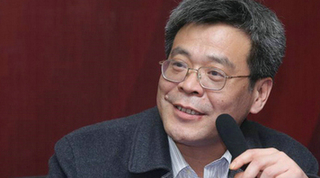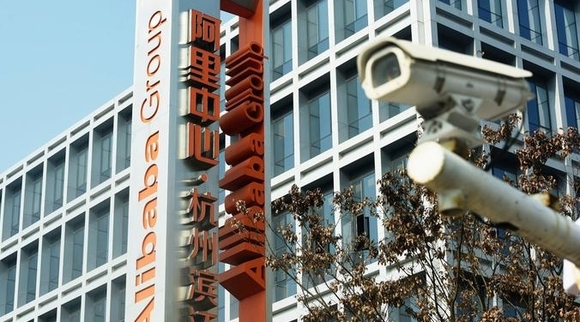“law-based governance” is the best business environment'—so says the official explainer to amendments to the Company Law
MNCs like Enron are bywords on the international stage for fraud, corporate malpractice and state-threatening wipeouts.
The PRC has its own versions—Evergrande, Huarong and Luckin Coffee—to name a few. They epitomise its byzantine power networks and complex corporate structures and have long posed macro and micro risks.
Under Xi’s ‘law-based governance’ paradigm, the oft-updated Company Law is the bulwark of reining in corporate misbehaviour. Tinkered with five times since enactment in 1993, the law is again up for amendment, its second major makeover since 2005. This, in principle, backs up Beijing’s moves over 2020–21 to rein in tech giants and their narrow (i.e. Party-indifferent) bottom-line focus. The pitch is that the business environment stands to benefit from clear laws, a more robust regulatory stance and, not least, the ubiquitous presence of the Party.
power vs. accountability
Under current policy settings, SOEs (state-owned enterprises) will become ever bigger and more powerful. Ninety-five of the 135 PRC firms (including Hong Kong) on the 2021 Fortune 500 are state-owned.
Once thought to be on the wane, SOEs are now groomed to play still greater state-ordained roles. Baowu and other giants, for example, are consolidating the steel industry. With carbon neutrality a growing priority, greater top-down control lies behind further mergers. In late 2021, two new central SOEs were launched, devoted to rare earths and logistics.
Real estate and online payments are hot prospects for similar state takeovers. The central bank’s digital currency is ‘not meant as a competitor’ to Alipay and WeChat Pay, it is claimed. Yet it shrinks their market share.
Many SOEs seem not so much led as owned by their CEOs, who forget they are ‘only managers’, warns Guan Xiaofeng 管晓峰 China University of Political Science and Law. When firms do well, opportunities for abuse multiply. Overly empowered CEOs can then use state capital to benefit themselves, to the firm's detriment. Given SOEs' symbolic and structural status, defects and corruption quickly spread. A freeze in bond markets persisted for months following local SOE bond defaults; in the Huarong case, failures grew too big to be solved by market measures, forcing state intervention.
power to the Party
Greater Party control is deemed essential. Safeguarding central prerogatives, the amended Company Law bakes in Party oversight. Regulations specific to state-owned entities are generalised, applying now to state-owned capital holding companies and SOEs, while the Law on State-owned Assets of Enterprises covers firms with state-owned shareholders. The text is still vague on how the amended law will apply to firms' subsidiaries—a moot point given the elaborate org charts that are a hallmark of China's SOEs.
Expanding the scope of coverage, the amendments enshrine Party dominance, noting ‘Party organisations’ in state-funded companies will direct, discuss and analyse executive decisions and support management. The draft also requires submission of major decisions to the state for approval.
Party and state hyperactivity (not to say meddling) risks liability suits and reputation damage, warns Jiang Daxing 蒋大兴 Peking University. Party directives to boards of directors should, he advises, be phrased as ‘suggestions’.
amending institutional chaos
Corporate governance concerns are not limited to SOEs. Majority shareholders everywhere resort to any methods to grab operational control, to the detriment of minority share- and stakeholders. Under PRC law, a firm must have a board of directors and another of supervisors to mitigate conflicts of interest, in theory emulating Germany and other EU member states. Yet the system is deemed a failure: majority shareholders set up networks of arrangements giving them complete control.
The amended Company Law attempts to sort this out. Firms will have the option to set up either a board of supervisors or an audit committee to supervise the board of directors and company executives, similar to US models. Other provisions will install independent directors originating outside the company and free of judgement-clouding connections with related parties. Often honoured in the breach, such a program will be tough to realise.
Lastly, directors and executives who, intentionally or not, harm shareholder interests will be jointly liable. Audit committees, working under boards of directors, may improve the current system, but more effective will be specifying where liabilities begin and end. Five independent directors were found liable in the November 2021 Kangmei fraud case, though the fraud was not of their doing. The ruling resulted in scores of board members resigning nationally. Further clarification on director liability and remedies for plaintiffs was issued in February. In principle, such rulings would make it harder for shareholders to insert their lackeys on boards, yet overly draconian rulings may equally deter qualified candidates.
New Era corporate governance
The corporate governance doctrine embodied in the amended Company Law (promulgation expected in H2 2022) does not deliver ‘power to shareholders’. The legal duties of public and private firms will extend beyond their actual controllers’ profits. Minority shareholders will get better protection; the Party-state will act as a stakeholder when deemed necessary. This follows moves in 2021, forcing big tech and other sectors into line with Beijing’s agenda.
Legal scholars lament the limited scope of promised amendments. The draft complains Deng Feng 邓峰 Peking University Law and Economics Research Centre, barely touches on exits, M&As or financial accounting. Clarified, these technical issues would pave a more straightforward way for winding up zombie firms, further preventing the loss of state-owned assets. However, navigating the conflict of political interest is beyond Beijing’s current appetite for risk ahead of the 20th Party Congress.
what are the experts saying

Zhao Xudong 赵旭东 | China University of Political Science and Law professor
Managers are often overlooked in theoretical studies of corporate law, points out Zhao. Yet they are critical factors in corporations, setting the terms for successful operation and value creation. A manager is not essential under the Company Law in a potential legislative recipe for disaster. The day-to-day operations of many companies are left headless, with poor accountability mechanisms.

Jiang Daxing 蒋大兴 | Peking University Law School professor
China's authoritarian culture is inherently resistant to democratic corporate governance, says Jiang. In a closed LLC, he argues, collective decision-making is often hijacked by the board chair rendering the board itself supernumerary. He urges abolishing mandatory boards of directors. The executive authority of shareholders' meetings and boards of directors should be diluted or even ended. Mandating the board of directors elongates the corporate decision chain and increases the cost of corporate governance. Given board chairs and managers are the only real decision-makers, Jiang argues for removing the pretence of democratic management; retaining scope for board member dissent in the law is pointless.

Feng Guo 冯果 | Wuhan University Law School dean
The basic principles underpinning shareholders' capital contribution obligations are that the capital be real and maintained. Creditors have been granted ever more diverse protection with advances in commercial practice, argues Feng. The guarantee function of capital is weakening. In US law, solvency test models reflect the replacement of capital credit by corporate credit, but in China, valuing credit has little institutional history, nor is there a mature accounting system to record it. Sudden abolition of the capital maintenance doctrine may reshape commercial views on capital and investment and erode investor confidence. So, as the Company Law undergoes another amendment, the doctrine of capital preservation cannot be negated: a balance must be found between corporate operation, reducing financing costs and maintaining the interests of creditors.
context
20 Jan 2022: new central SOE groups form to promote professional integration in multiple fields
27 Dec 2021: PBoC (People’s Bank of China) and SAMR (State Administration for Market Regulation) call for comment on ‘Temporary management measures on market entity beneficial owner information’
